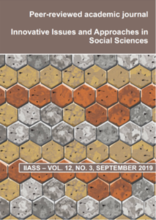Abstract
Adoption is a childcare and protection measure that enables an unaccompanied child to benefit from a substitute and permanent family care; it can be either domestic or inter-country. This study examined perceptions and practices of domestic adoption in Adama City in Oromia/Ethiopia. Interviews and document review were used in gathering information. Six (6) adoptive parents and thirteen (13) other community members participated in in-depth interviews and six (6) key informant interviews were made with staffs of three adoption agencies. Narrative analysis technique was employed. The study reveals that people’s perception towards adoption practice, adoptive parents and children is mixed; it could be positive and encouraging or negative and discouraging. Personal, religious and moral reasons are major sources of justification for those who adopt children whereas few of them centrally focus on meeting needs and interests of the child. Fear of property inheritance by the adoptive child in the future is the most important factor for people who refrain from adopting children. Banning inter-country adoption by the government of Ethiopia as of January 2018 while there are sizable children in need of substitute and permanent family care proves the necessity of cultivating domestic adoption practices and revitalizing Guddifachaa which is customary alternative childcare practice originated among the Oromo and widely accepted across the country.

